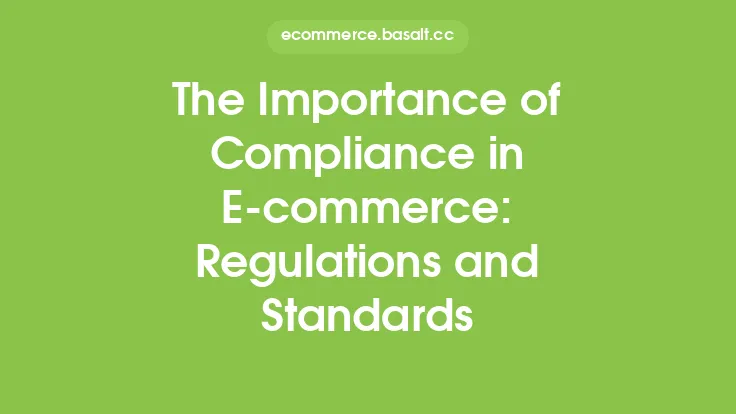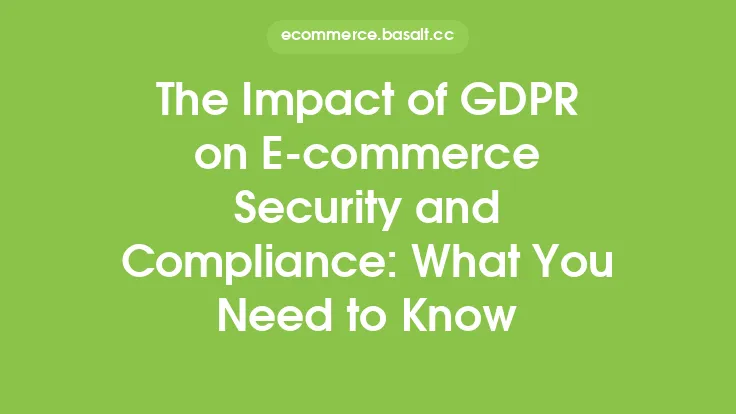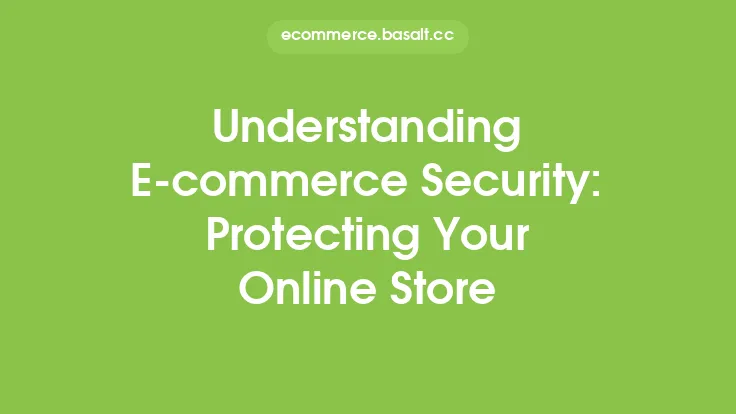Regular updates and patches are crucial components of e-commerce security and compliance. As online stores continue to evolve and expand, the potential vulnerabilities and threats they face also increase. One of the most effective ways to protect against these threats is by ensuring that all software, plugins, and systems are up-to-date with the latest security patches. This not only helps to prevent cyber attacks but also ensures that the online store remains compliant with relevant regulations and standards.
Introduction to E-commerce Security Updates
E-commerce security updates refer to the process of applying patches and fixes to software, plugins, and systems to protect against known vulnerabilities and threats. These updates are typically released by software vendors and are designed to address specific security issues that have been identified. By applying these updates, online store owners can help to prevent cyber attacks and protect their customers' sensitive information. Regular updates also help to ensure that the online store remains compliant with relevant regulations and standards, such as the Payment Card Industry Data Security Standard (PCI DSS) and the General Data Protection Regulation (GDPR).
The Importance of Regular Updates
Regular updates are essential for maintaining the security and integrity of an e-commerce website. When software vendors release updates, they often include patches for known vulnerabilities that could be exploited by hackers. By applying these updates, online store owners can help to prevent cyber attacks and protect their customers' sensitive information. Additionally, regular updates can help to improve the overall performance and functionality of the website, ensuring that it remains stable and secure. This, in turn, can help to build trust with customers and improve the overall shopping experience.
Types of Updates and Patches
There are several types of updates and patches that are relevant to e-commerce security. These include:
- Security patches: These are updates that are specifically designed to address known security vulnerabilities.
- Software updates: These are updates that improve the functionality and performance of software and plugins.
- Plugin updates: These are updates that are specifically designed for plugins and modules used on the website.
- Operating system updates: These are updates that are designed to improve the security and functionality of the operating system.
Best Practices for Applying Updates and Patches
To ensure that updates and patches are applied effectively, online store owners should follow best practices. These include:
- Regularly checking for updates: Online store owners should regularly check for updates and patches for all software, plugins, and systems used on the website.
- Testing updates: Before applying updates, online store owners should test them to ensure that they do not cause any issues with the website.
- Applying updates promptly: Once updates have been tested, online store owners should apply them promptly to ensure that the website remains secure.
- Keeping a record of updates: Online store owners should keep a record of all updates and patches applied to the website, including the date and time of application.
Common Challenges and Solutions
Despite the importance of regular updates and patches, many online store owners face challenges in applying them. Common challenges include:
- Lack of technical expertise: Some online store owners may not have the technical expertise to apply updates and patches.
- Fear of disrupting the website: Some online store owners may be hesitant to apply updates and patches due to fear of disrupting the website.
- Limited resources: Some online store owners may not have the resources to dedicate to applying updates and patches.
To overcome these challenges, online store owners can consider outsourcing the application of updates and patches to a third-party provider or using automated update tools.
Conclusion
Regular updates and patches are essential for maintaining the security and integrity of an e-commerce website. By applying updates and patches promptly, online store owners can help to prevent cyber attacks and protect their customers' sensitive information. Additionally, regular updates can help to improve the overall performance and functionality of the website, ensuring that it remains stable and secure. By following best practices and overcoming common challenges, online store owners can ensure that their website remains secure and compliant with relevant regulations and standards.





